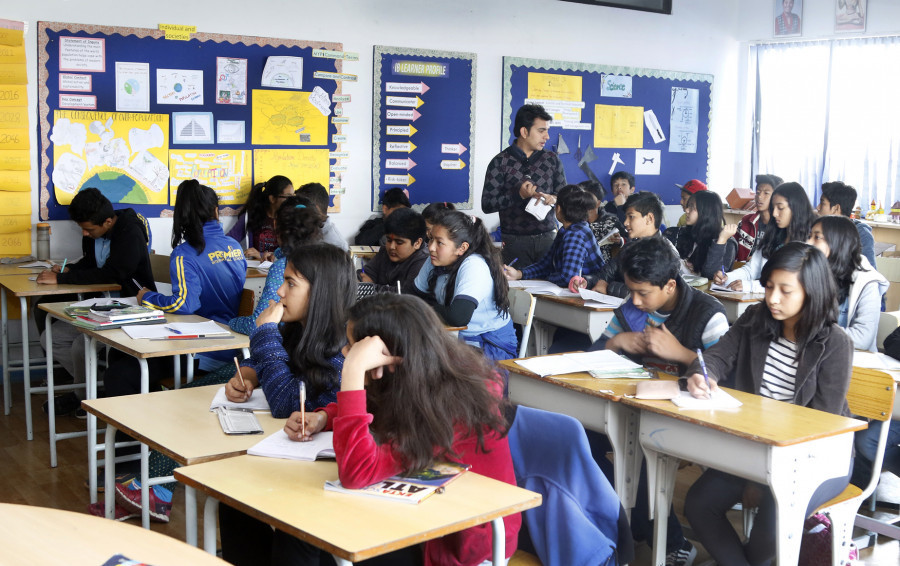Valley
Government finalising bill to grant licenses to schools only if investors agree not to use profit for personal benefit
The provision, however, will be applicable only to new schools as the law won’t have a retrospective effect.
Binod Ghimire
The government is giving final touches to a bill under which licenses to operate private schools will be granted on the condition that operators don’t use their profits for personal benefit.
The draft education bill, which will replace the prevailing Education Act, envisions turning school education into a non-for profit sector. As the new law won’t have a retrospective effect, it will not be applicable to schools already in operation under the company law.
“Private schools will get permission on the condition that investors don’t use their profit for personal benefit,” reads one of the clauses of the bill. Currently, a majority of private schools are registered under the company law,which allows investors to use profits earned by schools for personal benefit.
The bill, which is with the Ministry of Law after it received approval from the Ministry of Finance, will be tabled in Parliament during its ongoing session, officials said.
“The Ministry of Education seems to have drafted the bill to meet the government’s constitutional obligation to provide free school education to all,” a senior official at the Ministry of Law told the Post on the condition of anonymity as he was not allowed to talk to the media on the issue. “The bill will be sent to the Cabinet for approval before it gets registered in Parliament.”
The bill also makes it mandatory for private schools to receive approval from their respective local governments before accepting any donation in cash or kind. Approval from the Ministry of Finance is necessary for donations from abroad. It says that property of the schools will remain in its possession, and its operators won’t be allowed to use them for personal benefit.
Advocates for right to education say the spirit of the constitutional provision was to ensure that every child gets school education without having to pay for it. The High Level National Education Commission formed by the government to recommend policy changes to the education sector, also suggested that the government stop the commercialisation of education.
A report by the commission, submitted to Prime Minister KP Sharma Oli in mid-January last year, had recommended that the government convert all private schools into trusts from companies over the next 10 years. The commission had concluded that changing the ownership model could stop commercialisation of private schools and convert education into a service-oriented sector.
There are around 8,000 private schools across the country where nearly 20 percent of students study. Education experts say it is necessary to turn schools into non-profits. But they doubt the new law will be implemented.
“The government has hardly shown any interest towards fully implementing the constitutional provision of free and compulsory education. I won’t get surprised even if the new law suffers the same fate,” Binay Kusiyait, a professor at Tribhuvan University who researched education, told the Post.
Teachers working with the private schools also have been demanding that private schools be converted into trusts school operators be barred from using profits for their personal benefit.
In July 2017, the legislature-parliament endorsed an amendment to the Education Act-1972 making it mandatory for new private schools to be registered as trusts, ending the option to run under company law. The move was criticised as it stopped the entry of new schools in the market allegedly at the behest of the school operators who were also members of Parliament.
Establishment of the new schools, however, has been banned in places like Kathmandu where a large number of schools are already in operation.




 9.89°C Kathmandu
9.89°C Kathmandu














